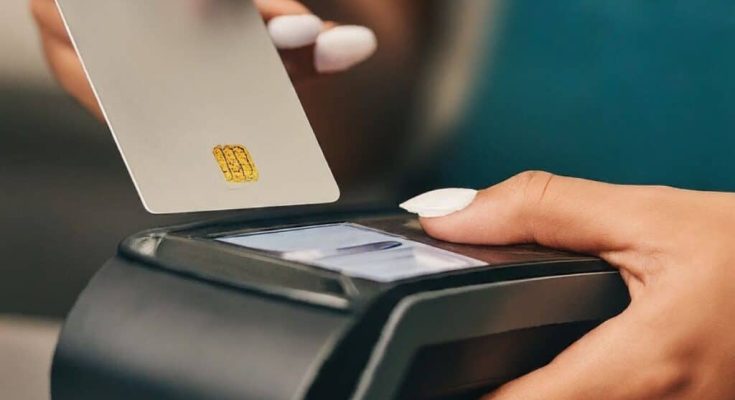When you think about improving your retail experience, the first thing that often comes to mind is technology. One such technological advancement is the Point of Sale (POS) system.
These systems, which have moved from bulky, traditional cash registers to sleek, user-friendly digital setups, are now a staple in most stores. They promise to streamline sales, track inventory, and offer various customer insights. But, are they really the blessing they seem to be for customer interaction? Or could they, in fact, be a curse for the personal touch that many customers crave?
The Good: How POS Systems Can Improve Customer Interaction
When used correctly, Pos systems can be a huge asset to both retailers and their customers. Here are some ways they benefit customer interaction:
- Speed and Efficiency
One of the main advantages of a POS system is the speed at which transactions can be processed. Instead of fumbling with cash or waiting for manual receipts, customers can quickly pay via card, mobile app, or other modern payment methods. This means no long queues or frustrating waits—customers appreciate efficiency and speed.
- Personalised Service
Many POS systems come with features that track customer purchase history. This can allow businesses to offer more personalised recommendations, loyalty rewards, or targeted promotions.
A customer walking into a store might feel pleasantly surprised when a staff member suggests an item based on their previous purchases. This type of personalised service can enhance the shopping experience and foster customer loyalty.
- Real-Time Inventory Updates
No one likes finding out that the item they wanted is out of stock. With modern POS systems, stock levels are updated in real time. This means customers can quickly find out if the product they’re looking for is available or if it needs to be ordered online. In some cases, the system can even suggest similar products, helping to close a sale while offering the customer a good alternative.
- Faster Checkout
As the checkout process becomes quicker, it means customers can get back to their day faster. Especially in busy retail environments, reducing the time spent at the register can make a huge difference in overall satisfaction.
The Bad: Could POS Systems Be Hurting Customer Interaction?
Despite all the positives, there are also a few downsides to POS systems that could negatively affect customer experience.
- The Loss of Personal Touch
This is probably the biggest concern. When staff are busy typing away at a POS terminal, there’s a risk that the interaction becomes more transactional than personal. Instead of engaging with customers, staff are focused on the system, typing, scanning, and processing payments. The personal connection that some customers value might take a backseat, leaving them feeling like just another number in the system.
- Technical Glitches
No system is perfect, and POS systems are no exception. There can be times when the software crashes or when the hardware malfunctions, leading to delays at checkout or frustrating customers. It’s at these moments that the system can go from a blessing to a curse, as customers are left waiting or dealing with mistakes that could easily be avoided in a manual setup.
- Overcomplicated Processes
POS systems often come with a host of features that can seem useful at first glance, but when used poorly, they can overcomplicate the checkout process. This might mean extra steps for customers—like confirming their details or answering additional questions—during what should be a simple transaction. The more complex the system, the more likely it is to slow things down and make the process feel cumbersome, not efficient.
- Lack of Human Interaction
For some customers, shopping is as much about the experience as it is about the products. When a POS system takes over too much of the process, it can lead to fewer face-to-face interactions between customers and staff. While some shoppers are happy to breeze through their purchases quickly, others might miss the old-fashioned service of having a chat with the cashier or getting product advice. If businesses over-rely on POS systems, they could risk alienating customers who value that personal connection.
Finding the Balance: Can POS Systems Improve Customer Interaction Without Losing the Human Touch?
As with any piece of technology, balance is key. POS systems offer convenience, speed, and efficiency—but they shouldn’t come at the cost of human connection. For businesses looking to strike the right balance, here are a few tips:
- Training Employees to Use the System While Engaging with Customers
Staff needs to be trained not just in how to use the POS system, but also in how to balance its use with customer interaction. A quick transaction doesn’t have to mean a lack of conversation. Employees can still ask how the customer’s day is going, offer product recommendations, and make the experience feel warm, even when using the system.
- Know Your Customer’s Needs
The goal of a POS system is to help make the shopping experience smoother. But to do so, it’s important to know when to use the system and when to step back. Not every customer needs personalised recommendations or a loyalty card offer; sometimes, they just want to pay and leave. Reading the situation can help businesses make the most of the system without making customers feel overwhelmed.
- Combine Tech and Tradition
Some businesses are finding success by combining tech and tradition. For example, a retail store might have POS systems for quick transactions but also maintain areas where customers can receive hands-on assistance from staff. This hybrid model allows businesses to offer the best of both worlds.
- Keep It Simple
Not every feature in a POS system needs to be used during every transaction. Keeping things simple—like quickly processing a payment and moving on—can help maintain a fast, seamless checkout process while still offering the technology benefits that the POS system promises.
Conclusion: Blessing or Curse?
The verdict on POS systems isn’t a simple one. They offer a lot of benefits for both businesses and customers, especially when it comes to speed, convenience, and personalisation. But if they’re used improperly or too heavily relied upon, they can take away from the personal touch that makes shopping a more enjoyable experience for some customers.
Ultimately, POS systems can be a blessing if businesses find the right balance between efficiency and human interaction. When used well, they can improve the customer experience and make things run more smoothly. But when used without consideration, they risk alienating customers who miss the personal connection.
Technology should complement, not replace, the human element in customer service.




